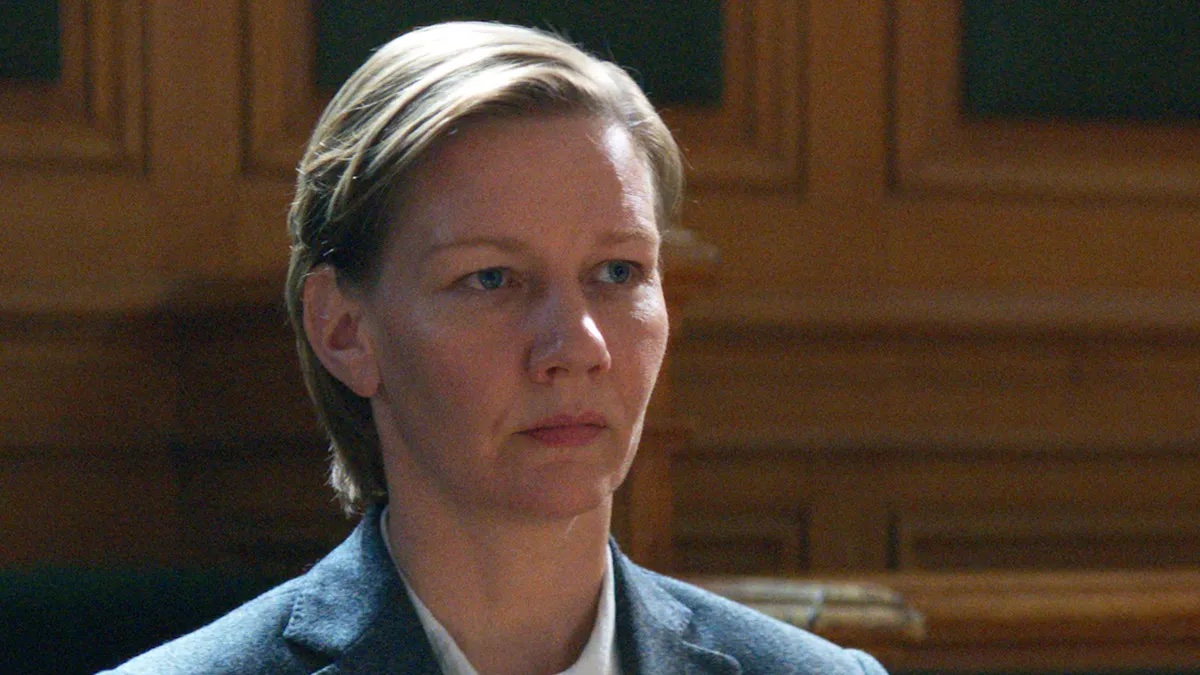So, Did Sandra (the Character, Not the Actress) Kill Her Husband or Not?

Whoever was in charge of selecting France’s submission for the Best International Feature Film Oscar for this year’s ceremony, they certainly displayed a masterclass in how to make the competition as smooth as possible for The Zone of Interest.
Indeed, Justine Triet’s Anatomy of a Fall—which was, for some inane reason no doubt, not submitted as France’s horse in that particular race—proved more than capable of tangoing with Hollywood at the 96th Academy Awards, vying for Best Picture, Best Director, Best Actress, Best Editing, and Best Original Screenplay, of which it took home that final honor.
To put it as briefly as possible, Triet’s legal drama stars Sandra Hüller as a woman named Sandra who, with no one but her blind son as a witness, endeavors to prove her innocence when her husband dies under mysterious circumstances, a death she’s suspected of causing via a blunt-force blow to the head, which led to a roughly two-and-a-half story drop out of an attic window, and a violent bounce off the nearby shed for good measure.
And, like all the best legal dramas, Anatomy leaves you with but one question: Did she do it?
Is Sandra really innocent?
The film ends with Sandra being acquitted and sharing a tender reunion with her son Daniel before heading to bed, briefly allowing herself to stare at a photo of Samuel, her deceased husband, before falling asleep.
In all likelihood, Sandra’s innocence reflects the truth of what really happened, even though we don’t know what actually happened. And just as well, because Anatomy of a Fall is, quite intelligently, not chiefly interested in the question of Sandra’s innocence.
Instead, the film wants us to question the sheer perversion of the man-made enterprises (which are certainly not limited to legal systems) that are fundamentally incapable of parsing something as natural and mercurial as the human condition—particularly when interpersonal nuances are involved—in the grossly rigid and exhaustingly particular ways they would prefer, and subsequently cause more discord and confusion than they actually extinguish. And, in no small part does this have to do with these same enterprises being subject to the perceptional limitations of the human condition themselves, despite their masquerading as something more objective.
With that in mind, it makes the most sense for Sandra to be truly innocent, as having her be guilty would unnecessarily risk running entirely counter to the film’s foundational thematic aim. And, textually speaking, even if she were guilty, the outcome of that could effectively be summarized as a blind child with a jailed mother and a dead father, the latter of whom probably wouldn’t have been alive much longer anyway.
Not that this film should be read as a possible advocation for murder, of course; it’s simply a testament to the way it twists the essence of perception like a knife.
(featured image: Neon)
Have a tip we should know? tips@themarysue.com